Newly revealed bin Laden document details al Qaeda strategy to attack
By Paul Cruickshank, Tim Lister and Nic Robertson
A previously secret document found at Osama bin Laden's compound in
Pakistan sets out a detailed al Qaeda strategy for attacking targets in
Europe and the United States.The document - a letter written to bin Laden in March 2010 by a senior operational figure in the terror group - reveals that tunnels, bridges, dams, undersea pipelines and internet cables were among the targets.
It was written by Younis al-Mauretani, a senior al Qaeda planner thought to have been behind an ambitious plan to hit "soft" targets in Europe in the fall of 2010.
The U.S. Department of Justice passed the letter to German prosecutors last year for use in an ongoing trial in Dusseldorf because it possibly refers to one of the defendants, according to the German newspaper Die Zeit.
The 17-page letter is in Arabic.
Al-Mauretani proposed that al Qaeda recruits take jobs with companies transporting gasoline and and other sensitive companies in the West, and await the right moment to strike.
(CNN) -- A previously secret document found at Osama bin Laden's compound in Pakistan sets out a detailed al Qaeda strategy for attacking targets in Europe and the United States.
The document -- a letter
written to bin Laden in March 2010 by a senior operational figure in the
terror group -- reveals that tunnels, bridges, dams, undersea pipelines
and internet cables were among the targets.
It was written by Younis
al-Mauretani, a senior al Qaeda planner thought to have been behind an
ambitious plan to hit "soft" targets in Europe in the fall of 2010.
The U.S. Department of
Justice passed the letter to German prosecutors last year for use in an
ongoing trial in Dusseldorf because it possibly refers to one of the
defendants, according to the German newspaper Die Zeit, which first
broke the story.
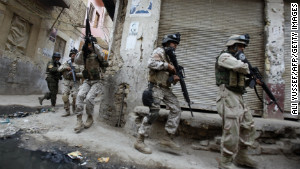 Al Qaeda's rise in Iraq
Al Qaeda's rise in Iraq
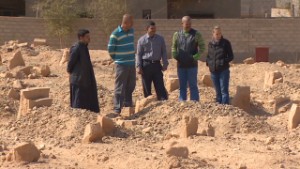 Surviving al Qaeda
Surviving al Qaeda
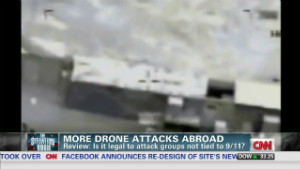 Targeting terrorists
Targeting terrorists
CNN has obtained details of the document from sources briefed on its contents. The 17-page letter is in Arabic.
Al-Mauretani proposed
that al Qaeda recruits take jobs with companies transporting gasoline
and and other sensitive companies in the West, and await the right
moment to strike.
He said targets should
include tunnels, airports and even "Love Parades" -- gay and lesbian
events held every summer in Germany. He said recruits should infiltrate
university courses in the West in key subjects useful to the group
including physics and chemistry, so that they could later be
re-activated and help the group, according to Die Zeit.
He also suggested
attaching mines to undersea pipelines using mini-submarines -- and
appears to have researched ways to circumvent safety valves on such
pipelines. Al Mauretani also proposed that al Qaeda attack financial
centers and think-tanks -- specifically mentioning the RAND Corporation,
whose headquarters are in California.
Asked if it was aware of
the threat, a spokesman for RAND told CNN that "as a matter of policy,
the RAND Corporation does not comment on specific security issues or
potential threats."
Yassin Musharbash, an
investigative reporter with Die Zeit in Berlin, says the document seems
"to support information gleaned from other terror trials that Al Qaeda
in 2010 was trying to plan a comprehensive plot against the West," and
al-Mauretani appears to have been bent on "hitting Europe and the U.S.
by targeting critical infrastructure and economic targets."
Some of al-Mauretani's
ideas may seem far-fetched, but they underline al Qaeda's continuing
fascination with bringing down airliners. He proposed that men recruited
into the Yemeni al Qaeda affiliate AQAP become pilots with airlines,
and then drug their co-pilots before flying the plane into a target. One
target he identified was the massive petrochemical facility at Abqaiq
in Saudi Arabia.
Al Mauretani suggested
that Osama bin Laden signal the go-ahead for attacks in Europe with a
public message that al Qaeda's patience with Europe had run out. And he
had a clear sense of how to finance attacks, saying that al Qaeda in the
Islamic Maghreb (AQIM) had "millions" and its leaders trusted him,
according to Die Zeit. Mauretani himself was originally from Mauritania
in north-west Africa.
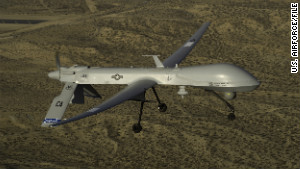 Al Qaeda's guide to avoiding drones
Al Qaeda's guide to avoiding drones
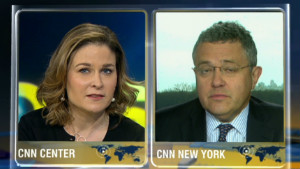 Memo on killing American al Qaeda
Memo on killing American al Qaeda
Sources briefed on the
contents of the letter told CNN that al-Mauretani wrote that al Qaeda
Central in Pakistan could only cover the starting costs of the operation
against Europe and additional costs would have to be covered by AQIM
and others. Analysts tell CNN al-Mauretani's call for the various nodes
of al Qaeda to work together was emblemmatic of a shift within the
terrorist network towards greater coordination and pooling of resources.
Al-Mauretani added that
AQIM had a "great deal of trust" in him, according to the sources.
According to analysts the North African operative paved the way for
direct cooperation between AQIM and al Qaeda's senior leadership in the
late 2000s after he travelled to Pakistan. In late 2011 Moktar
Belmoktar, then a senior figure in AQIM, told a Mauritanian journalist
that al-Mauretani was the "first direct contact between us and our
brothers in Al-Qaeda."
Bin Laden appears to
have liked the ideas in al-Mauretani's letter, and assigned them high
priority. Other documents found at his Pakistani compound in Abbottabad
suggest he forwarded it to at least one other senior figure in al Qaeda.
In around June 2010, bin
Laden wrote to senior Libyan operative Atiyah abd al Rahman, then al
Qaeda's head of operations in Waziristan, instructing him to tell the
leaders of the al Qaeda affiliates AQIM in North Africa and AQAP in
Yemen to "put forward their best in cooperating" with al-Mauretani "in
whatever he asks of them."
"Hint to the brothers in
the Islamic Maghreb that they provide him with the financial support
that he might need in the next six months, to the tune of approximately
200,000 euros," bin Laden wrote.
CNN has learned the
document was sent to German prosecutors by the Justice Department after
they had asked for any information the United States might have about
three men from the Dusseldorf area charged with planning an attack in
Germany on behalf of al Qaeda in April 2011. CNN asked the Justice
Department about the document but has so far received no comment.
According to Die Zeit,
the reason the letter was relayed to the Germans was because
al-Mauretani mentions a Moroccan in the document with exactly the same
date of birth as Abdeladim el-K, who prosecutors claim was the
ringleader of the alleged Dusseldorf cell and trained with al Qaeda in
Pakistan in 2010.
Sources briefed on the
contents of the document told CNN that al-Mauretani appears to suggest
the Moroccan should travel to join up with militants in Somalia if his
mission failed.
Sources say three FBI
officials will testify at the trial in Dusseldorf Wednesday on the
authenticity of the document. Defense lawyers say they have "fundamental
doubts" about the document.
As for al-Mauretani, he
is unlikely to have any role in bringing his terror plans to fruition.
He was picked up by Pakistani police in Quetta in August 2011 and
remains in detention.
Pakistani authorities
appear to have uncovered some of his terror plans. In announcing his
arrest a month later, they stated: al-Mauretani "was tasked personally
by Osama bin Laden to focus on hitting targets of economical importance
in United States of America, Europe and Australia, including gas
pipelines, power generating dams and oil tankers."
Several of al-Mauretani's western recruits -- trained in the tribal territories of Pakistan -- have been arrested on their return home.
American al Qaeda
recruit Bryant Neal Vinas testified at his trial that that he had drawn a
map for al-Mauretani in mid-2008, showing Long Island Railroad lines.
Al-Mauretani had decided
the best scheme would be to launch a suicide bombing on a train as it
entered a tunnel. And he told Vinas that preferably a white operative
with Western travel documents would be tasked to carry out the attack.
In 2010, al-Mauretani
was seen as the mastermind of planned attacks in Europe. Fears that such
attacks would materialize led the U.S. State Department to issue a
travel alert in October 2010.
Sources briefed on the
letter told CNN that al-Mauretani requested bin Laden issue a statement
saying al Qaeda's patience with Europe had run out following the al
Qaeda leader's previous offering of a conditional truce, and that his
statement needed to be choreographed with an attack shortly afterwards.
"We ask you undertake
certain steps in order to threaten Europe before the attacks happen. And
these steps should be in synch with the preparations of those attacks.
Inform Europe that patience has come to an end, as has our hope that
they end their campaign against us. Also [make clear] that they have not
understood our message thus far. One or two weeks after that we will
strike ... and then we will threaten them again. After we hit Europe we
will hit America, so we isolate the Americans," the sources said
al-Mauretani wrote in the letter.
Die Zeit's Musharbash
says al-Mauretani's blueprint "has very likely little operational value
now. But certain ideas may have trickled down and may still be alive
elsewhere in the network."
Al Qaeda Document Reveals Terrorist Plans For Attacks In The U.S., Europe
The Huffington Post
|
By Meredith Bennett-Smith
Posted: 03/23/2013 9:04 am EDT
News of the document recently came to light after German newspaper Die Zeit published a story detailing its contents.
The outlet reports that the U.S. Department of Justice gave the letter to the German Federal Office of Justice in April 2012 for the trial of alleged terrorists in Germany, according to a Huffington Post translation of the story.
Johannes Pausch, the lawyer for one of the accused, told the paper he's skeptical about the authenticity of the document.
Written in 2010 by Younis al-Mauritani, a senior al Qaeda operative, the 17-page letter proposes attacks against a variety of targets, including tunnels, bridges, and underwater gas pipelines, the Telegraph notes.
The pipeline idea is explored in some depth, with the operative noting "that the pipelines have safety valves every 6 miles that need to be taken into account when planting mines," according to the news outlet.
Al-Mauritani, who was arrested in Pakistan in 2011, also named a handful of specific targets, including the RAND Corporation research institute in California and the Love Parade, a now-cancelled dance music festival in Germany.
A RAND spokesman told CNN that "as a matter of policy, the RAND Corporation does not comment on specific security issues or potential threats."
The news outlet, who said it received the information from "sources briefed on its contents," reported that al-Mauritani felt operatives should continue to train as pilots and recruits should work for airlines. On the day of the attack, the terrorists could simply drug their co-pilots and fly the plane into the target, CNN reported.
The letter also includes details about al Qaeda's finances and asked for the organization's various regional cells to work together more.
Al-Mauritani was allegedly responsible for al Qaeda international operations, according to the Associated Press, and was supposed to plan direct attacks of "economic importance in America, Europe and Australia."
A document allegedly containing details of al Qaeda's strategy was discovered in north Africa, according to the AP. The document was discovered by members of the press in buildings once used by rebels in Mali.
The letter, which is incomplete, includes a warning to operatives not to be too hasty in implementing strict Shariah law.
